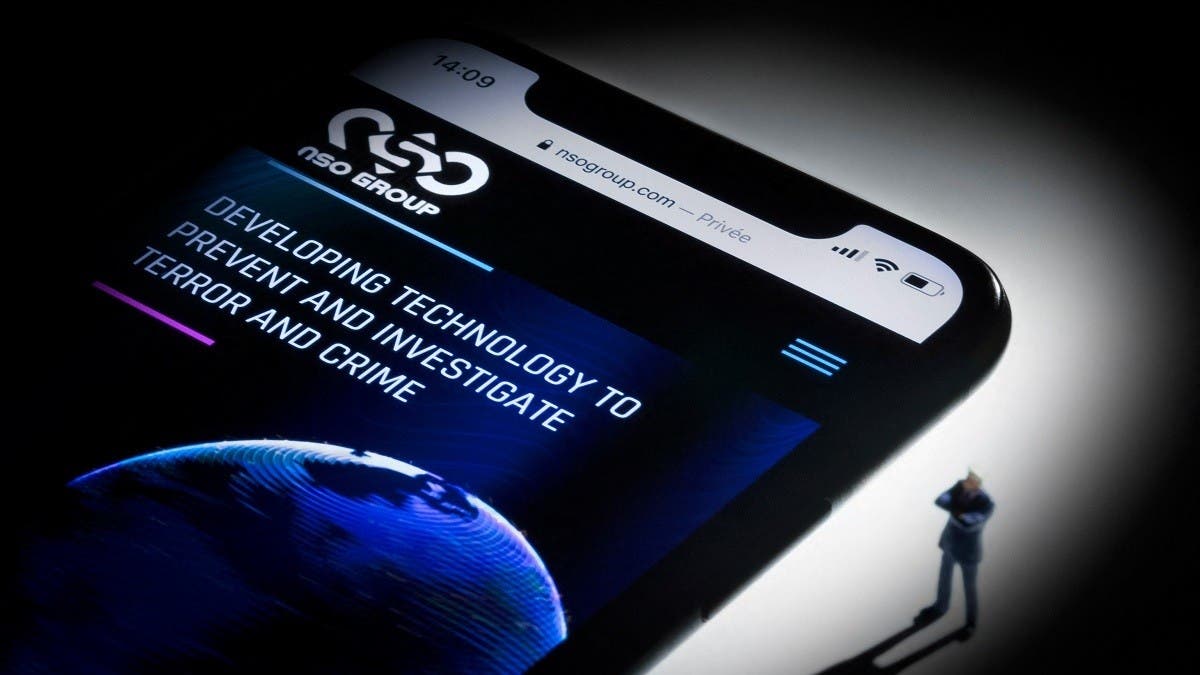Israel’s police commissioner cut short an official foreign trip Tuesday and rushed home to deal with a growing scandal over reports of illegal spying, including on members of former Prime Minister Benjamin Netanyahu’s inner circle.
Under mounting pressure, Kobi Shabtai returned early Tuesday from the United Arab Emirates, where the police forces were to establish professional ties during a longer visit. The decision came a day after a local newspaper reported that police illegally used spyware, including on the phones of Netanyahu’s son and others, prompting a high-level investigation and upending the opposition leader’s corruption trial.
For the latest headlines, follow our Google News channel online or via the app.
“In light of recent publications and in order to keep a close eye on developments, the commissioner will shorten his visit,” the police said in a statement, noting that Shabtai supports an investigation headed by a judge. The national police force, the statement added, “has nothing to hide from the public.”
Shabtai’s early return reflected the seriousness of the allegations reported by the Calcalist business newspaper, which have ricocheted across Israel’s political and legal landscapes. In addition to Netanyahu’s circle, targets have included former ministry directors, mayors and political activists.
The reports have said that police used the powerful Pegasus surveillance software, made by Israeli firm NSO Group. Pegasus has been linked to a number of abuses by authoritarian governments around the world.
On Monday, the outlet claimed that Pegasus had become “one of the most used tools for intelligence collection in the hands of the police” and had been used against politicians, protesters, business moguls, ministry directors and Netanyahu’s close advisers and son. Like previous reports, the paper cited no sources, but for the first time named people allegedly surveilled by the police.
The police denied the allegations and on Tuesday said no evidence of illegal activity had been uncovered. But the reports drew condemnation from across Israel’s political spectrum. They threw Netanyahu’s ongoing corruption trial into disarray after a key witnesses was named as a victim of the alleged hack. A second consecutive hearing, scheduled for Wednesday, was canceled.
Israeli Prime Minister Naftali Bennett on Tuesday called for an examination of the more than two dozen names reported to have been targets of the snooping after meeting with Cabinet ministers and the attorney general, his office said.
Netanyahu demanded a “strong and independent investigation” into the alleged misuse of the spyware, calling it a “black day for Israel” as proceedings in his trial were put on hold.
Public Security Minister Omer Barlev, who oversees the nation’s police force, announced the a government commission of inquiry headed by a retired judge to “investigate in depth the violation of civil rights and privacy in the years in question.” He said the alleged violations appear to have been carried out under former officials in previous governments.
Israel’s previous police chief, Roni Alsheikh, who was in command during much of the alleged snooping, made his first comments since the reports were published. The Hebrew news website Ynet quoted him denying any wrongdoing, adding that any surveillance of a public official’s phone would require the attorney general’s approval and that any use of spyware would be logged. He called the report “the most superficial there is.”
Calcalist said the police used spyware against a phone registered to Netanyahu’s son, Avner, as well as two communications advisers and the wife of another defendant in one of three corruption cases against the former leader.
It remains unclear whether any of the information allegedly gathered was used against Netanyahu. Also unclear is whether any of the information allegedly gathered was used against the former prime minister.
Barlev’s probe follows announcements by Israeli police and the attorney general’s office that they would investigate. Last week, police for the first time acknowledged finding evidence pointing to improper use of spyware.
Officials have not said which spyware was used. But Calcalist said it was Pegasus. NSO has been mired in controversy after the spyware was linked to eavesdropping on journalists, activists and politicians in several countries.
The newspaper said police used the spyware to gather intelligence before any investigation had been opened — and without judicial warrants.
Pegasus allows operators to quietly infiltrate a target’s mobile phone and gain access to the device’s contents, including real-time communications. Other Israeli companies have also produced powerful spying tools.
NSO does not disclose its clients and says it does not have access to the intelligence they collect or control how its products are used. It says all of its sales are approved by Israel’s Defense Ministry and that its technology is used by governments to combat crime and terrorism.
Read more: US State Department phones hacked with Israeli company spyware: Sources

 World3 years ago
World3 years ago
 World3 years ago
World3 years ago
 Business11 months ago
Business11 months ago
 Entertainment7 years ago
Entertainment7 years ago
 World7 years ago
World7 years ago
 Entertainment7 years ago
Entertainment7 years ago






